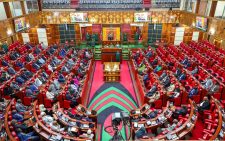Consulting citizens should be more than tokenistic

The right to participate in governance processes, including policy formulation, implementation and review at the national and county levels is the yarn that threads the fabric of the Constitution. Suffice it to say that the document is premised on a human rights-based approach to governance and service delivery.
This means human rights become the common-sense tool for formulating and implementing, as well as monitoring and evaluating, all policy and development processes. Duty bearers are obligated to appreciate and recognise that every action one takes is in fulfillment of a right or fundamental freedom to a citizen or community claiming the right.
It’s for this reason that the national values and principles of governance take pride of place in the Constitution, providing under Article 10 that these ideals and standards shall be binding on all State organs, State officers, public officers and indeed all persons whenever any of them applies or interprets the Constitution; enacts, applies or interprets any law; or makes or implements public policy decisions.
But experience has shown that there cannot be meaningful development without any regard to the principles of human dignity, participation of the people, equity, social justice, equality, human rights, non-discrimination of the marginalised.
But the cornerstones of participatory and sustainable development are consequential public participation that goes beyond the tokenistic ticking of boxes; one that pays particular attention to underserved segments of the population at risk of being excluded because of their socio-economic vulnerabilities.
Deliberate measures, including civic education and affirmative action programmes peppered with empowerment to elicit public demand for transparency and accountability, are essential ingredients of a rights-based and participatory governance and development process.
Put differently, it’s only rights-based when there are direct linkages to human rights standards as the underwriter of the entire cycle of the development process.
According to research conducted by Celestine Nyamu-Musembi and Andrea Cornwall of the Institute of Development Studies of the University of Sussex, UK, in 2004, “a human rights based approach to decision-making reinforces and strengthens existing principled practice by providing a rigorous approach to decision-making that increases confidence because decision-makers can be more certain their decisions are human rights compliant and in the best interests of those involved”.
Despite the overwhelming existence of sources of and sanctions on failure to abide by the dictates of the Constitution on what constitutes meaningful public participation, Kenya’s national executive continues to suffer one blow after another any time a policy or piece of legislation it has made is declared unconstitutional. County governments, though equally trapped in the same malaise, continue to get away with unconstitutional procedures and outcomes largely on account of not getting as much public attention and challenge as the national government.
Instructively, most of the declarations by superior courts on government policies, laws and administrative processes as unconstitutional have been on account of lack of public participation, and being in contravention of the letter and spirit of the Constitution.
In 2014, the Court of Appeal declared the rules on locus standi unconstitutional. The housing levy, the social health insurance fund and plans to privatise State corporations have been declared unlawful.
In 2016, the High Court declared the CDF Fund Act unconstitutional on account that it flies in the face of the devolved system of government and the principle of separation of powers. It has again been declared unconstitutional even after Parliament baptised it as the National Government-Constituencies Development Fund!
– The writer is the Executive Director of the Kenya National Civil Society Centre,
suba_churchill@yahoo.com












